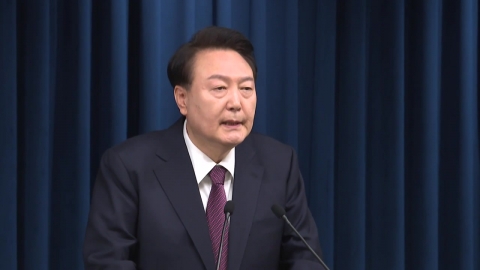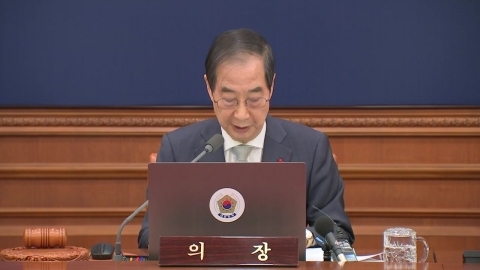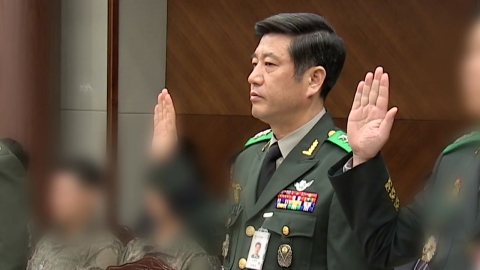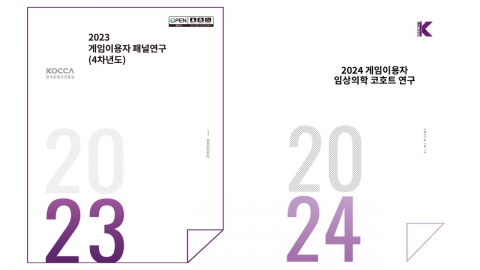"Triple shock." Exchange rate...Authorities mobilize all means, including curbing market dollar demand
"It's going up more early next year"...Additional measures for authorities
Corporate Emergency..."Next year's business plan needs to be adjusted"
Import raw material prices rise, hurting earnings
Concerns over rising investment costs in semiconductor and battery industries
Corporate Emergency..."Next year's business plan needs to be adjusted"
Import raw material prices rise, hurting earnings
Concerns over rising investment costs in semiconductor and battery industries
[Anchor]
The exchange rate, which is the Achilles' heel of the Korean economy, is in a "triple shock" due to Trump's election and the pace of U.S. interest rate cuts following political upheaval in Korea.
Amid predictions that it will be added early next year, authorities have begun to come up with additional measures, including curbing market dollar demand, such as an increase in swaps with the National Pension Service.
Lee Seung-eun reports.
[Reporter]
Companies are on alert as the already high exchange rate rises further.
Semiconductors and automobiles, which are representative export industries, are also affected by exchange rate fluctuations.
In the short term, export prices will be competitive, but in the mid- to long-term, imported raw material prices will rise, hurting profits.
In particular, semiconductor and battery companies are building large-scale factories in the United States, which will increase facility investment costs.
Companies that import a lot of raw materials, such as oil refining and steel industry, are also depressed.
It's hard to even gauge the situation early next year.
[Heo Joon-young / Professor of economics at Sogang University] With the Trump administration's new policies coming in, "Isn't this going to Korea's structural weakness?" There are policies that hit China harder than expected or hurt Japan.]
Financial authorities have asked banks to settle corporate foreign currency and adjust the maturity of foreign currency loans to help businesses avoid showers for now.
Instead, the introduction of bank stress-buffering capital, which was scheduled for the end of this year, has been postponed until after the second half of next year.
Instead of delaying measures to accumulate additional capital in preparation for crisis situations, they are asking us to use our capacity to support the real economy.
The foreign exchange authorities (Bank of Korea and the Ministry of Strategy and Finance) have increased the limit of foreign exchange swap transactions with the National Pension Service to $65 billion and extended the contract deadline by one year to the end of next year.
If the National Pension Service buys dollars from the market to buy overseas assets, the exchange rate rises further, so the foreign exchange authorities receive it first and return it later.
While it may have a temporary impact on the decline in foreign reserves, the authorities stress that concerns over the currency crisis are excessive because it is the world's ninth-largest at $415.4 billion and is a net foreign creditor.
[Choi Sang-mok / Deputy Prime Minister and Minister of Strategy and Finance: To stabilize the foreign exchange market and secure foreign currency liquidity, we will carry out measures to improve the supply and demand of foreign exchange, revitalize foreign exchange transactions during extended periods, and improve the trading infrastructure related to the global government bond index in the next year's economic policy direction.]
Amid dark clouds from the U.S., the sense of economic crisis in Korea without a top head coach is growing.
I'm YTN's Lee Seung Eun.
Video editing: Lee Jung-wook
Design: Lee Ga-eun
※ 'Your report becomes news'
[Kakao Talk] YTN Search and Add Channel
[Phone] 02-398-8585
[Mail] social@ytn.co.kr
The exchange rate, which is the Achilles' heel of the Korean economy, is in a "triple shock" due to Trump's election and the pace of U.S. interest rate cuts following political upheaval in Korea.
Amid predictions that it will be added early next year, authorities have begun to come up with additional measures, including curbing market dollar demand, such as an increase in swaps with the National Pension Service.
Lee Seung-eun reports.
[Reporter]
Companies are on alert as the already high exchange rate rises further.
Semiconductors and automobiles, which are representative export industries, are also affected by exchange rate fluctuations.
In the short term, export prices will be competitive, but in the mid- to long-term, imported raw material prices will rise, hurting profits.
In particular, semiconductor and battery companies are building large-scale factories in the United States, which will increase facility investment costs.
Companies that import a lot of raw materials, such as oil refining and steel industry, are also depressed.
It's hard to even gauge the situation early next year.
[Heo Joon-young / Professor of economics at Sogang University] With the Trump administration's new policies coming in, "Isn't this going to Korea's structural weakness?" There are policies that hit China harder than expected or hurt Japan.]
Financial authorities have asked banks to settle corporate foreign currency and adjust the maturity of foreign currency loans to help businesses avoid showers for now.
Instead, the introduction of bank stress-buffering capital, which was scheduled for the end of this year, has been postponed until after the second half of next year.
Instead of delaying measures to accumulate additional capital in preparation for crisis situations, they are asking us to use our capacity to support the real economy.
The foreign exchange authorities (Bank of Korea and the Ministry of Strategy and Finance) have increased the limit of foreign exchange swap transactions with the National Pension Service to $65 billion and extended the contract deadline by one year to the end of next year.
If the National Pension Service buys dollars from the market to buy overseas assets, the exchange rate rises further, so the foreign exchange authorities receive it first and return it later.
While it may have a temporary impact on the decline in foreign reserves, the authorities stress that concerns over the currency crisis are excessive because it is the world's ninth-largest at $415.4 billion and is a net foreign creditor.
[Choi Sang-mok / Deputy Prime Minister and Minister of Strategy and Finance: To stabilize the foreign exchange market and secure foreign currency liquidity, we will carry out measures to improve the supply and demand of foreign exchange, revitalize foreign exchange transactions during extended periods, and improve the trading infrastructure related to the global government bond index in the next year's economic policy direction.]
Amid dark clouds from the U.S., the sense of economic crisis in Korea without a top head coach is growing.
I'm YTN's Lee Seung Eun.
Video editing: Lee Jung-wook
Design: Lee Ga-eun
※ 'Your report becomes news'
[Kakao Talk] YTN Search and Add Channel
[Phone] 02-398-8585
[Mail] social@ytn.co.kr
[Copyright holder (c) YTN Unauthorized reproduction, redistribution and use of AI data prohibited]
Editor's Recomended News
-
I heard there was no arrest order, but there was a series of "presidential phone call" testimony.

-
Acting President Han Deok-soo exercised his veto for the first time..."Considering the Constitution and the Future"

-
Roh Sang-won's first investigation since his arrest...Civilians running all the way to the tram unit?

The Lastest News
-
38 KTX trains delayed due to signal problems at Cheonan Asan Station.
-
Trump Blathes Interference in Canada's Internal Affairs...CNN "Jungkook should be on the lookout for Korea and Europe"
-
220,000 new unemployment claims...below expectations
-
U.S. Q3 Growth Estimated at 3.1%...0.3%p compared to provisional value ↑





![[On site Y] Song Joong Ki...](https://image.ytn.co.kr/general/jpg/2024/1219/202412191721064962_h.jpg)



